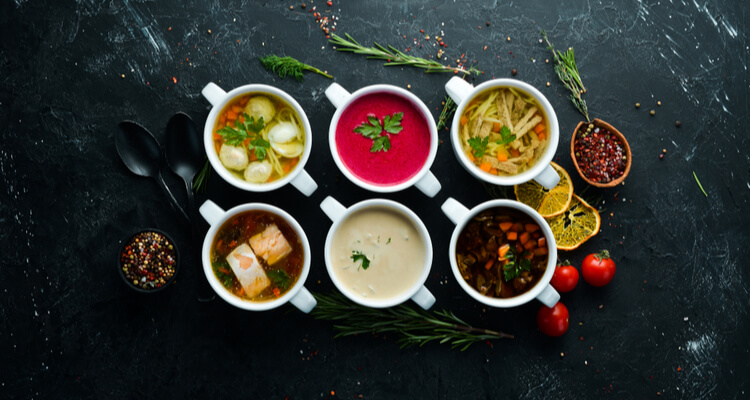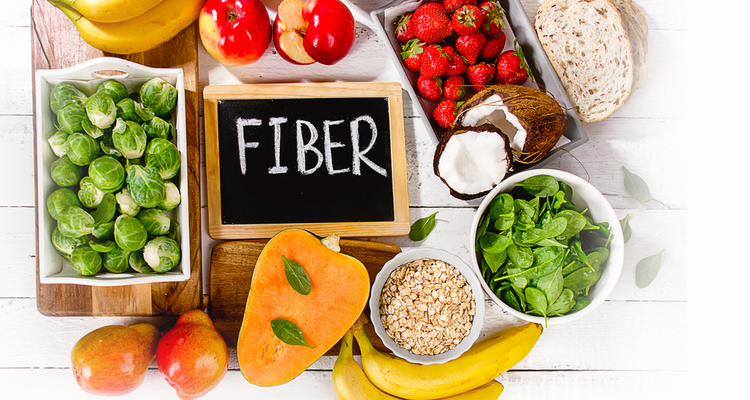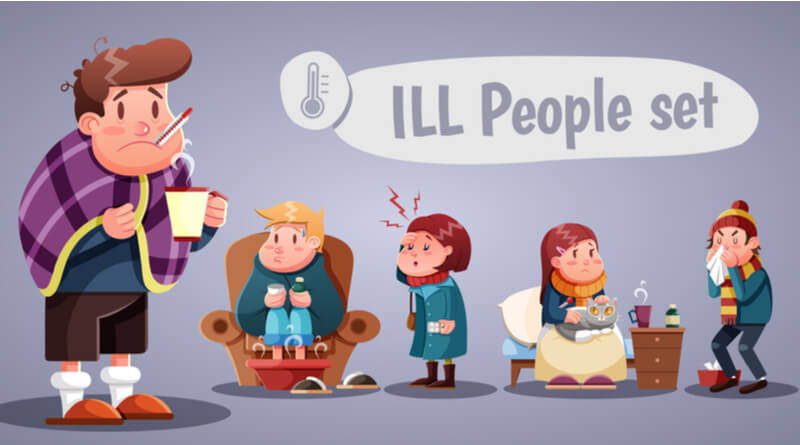Typhoid is a bacterial infection caused by a bacterium called Salmonella Typhi. This infection is communicable and can be transferred through air or water. Typhoid fever is extremely contagious. A person suffering from typhoid can undergo gastrointestinal issues, nausea, or loss of appetite. Typhoid is particularly common in certain developing countries and affects more than 12 million people every year.
Symptoms of typhoid include:
- Fever
- Headache
- Fatigue
- Diarrhea
- Chills
- Constipation
- Chest congestion
- Expansion of liver and spleen
- Intestinal ulcers
- Severe stomachache
- Hemorrhage
Gastrointestinal aches are common when you have typhoid. It is important to adhere to a nutritious and simple diet when you have typhoid. Foods that are easy to digest and filled with nutrients for replenishing the body should be prioritized for faster recovery.
A high- calorie diet is advised for typhoid affected patients. This will prevent weight loss when the body is busy dealing with the infection. Having small portions of food at regular intervals of time will retain strength and energy. One of the main symptoms of typhoid is diarrhea, which dehydrates the body to a great extent. It is crucial to maintain a diet that includes vegetable broth, strained fruits, and fresh fruits.
Also Read: Here’s What You Can Eat to Feel Better When You Have Hay Fever
Foods to include in your diet:
- A high-calorie diet is a must for typhoid suffering/recovering patients. High calorie foods like rice, bananas, boiled potatoes, and white bread must be a part of a typhoid patient’s diet.
- Fluids play a vital role in hydration. Typhoid leads to diarrhea and results in dehydration. Dehydration during an ailment like typhoid can result in complications during the treatment. You can add glucose, coconut water, lassi (sweetened buttermilk), fresh fruits and vegetable juices, vegetable broth, vegetables high in water content as a part of the diet. These foods replenish and hydrate your body.
- Foods high in carbohydrates and sugar are necessary to provide required energy to the body. Because immunity of the body takes a hit, and energy is lost during typhoid fever, semi-solid food is a better option for recovering patients as they are easier to digest. Porridge, fruit custards, poached eggs, baked potato, honey, and boiled rice are full of carbs and energy and make perfect foods for recovering typhoid patients.
- Dairy products constitute an important part of the diet when suffering from typhoid fever. If you don’t have an appetite for milk, you can always have it in the form of yogurt and buttermilk.
- Yogurt and eggs are easier to digest when compared to meat and easily make up for the protein deficiency in the body. Vegetarians can go for cottage cheese and legumes that are high in protein.
- Foods rich in omega-3 fatty acids are also beneficial for typhoid affected patients as they reduce inflammation in the body.
- Having soups serves two purposes, soups are full of nutrients and are easy to digest. Soups are also easy to prepare at home. For example, carrot soup, spinach soup, vegetable soup, mushroom soup, and chicken soup.
- Lentils are full of protein, and having rice and lentils is replenishing and light on the stomach. One of the best-recommended lentils for diet is ‘pigeon peas’, also known as toor dal.

Foods to Avoid:
There are certain types of food a typhoid suffering or recovering patient must avoid for recovering quickly.
- Foods high in fiber can drastically distress the digestive system. Hence, stay away from fibrous food until recovery. For example, barley, oats, broccoli, etc.
- Avoid vegetables that cause bloating and gas. For example, capsicum and cabbage.
- Do not include foods that cause inflammation in the stomach. While onions and garlic are healthy, having them too much can irritate the stomach during fever.
- Acetic and spicy foods must also be avoided as spicy food aggravate the digestive system. Salads and Chinese food prepared using vinegar, hot sauce, and chili should b avoided.
- Food items like butter, ghee, fried foods, and desserts have to be avoided.

Following these dietary tips can result in a speedy recovery. It is also essential to consult your physician, have medicines on time and discuss about your diet routine for a speedy recovery.








